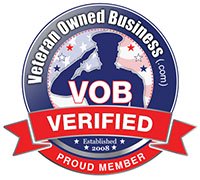Wealth inequality is result of ‘pure randomness’: Study
« Return to News
Much like playing a game of Monopoly, a recent study from Tufts University finds that when people are more wealthy, its because theyre lucky a result of just pure randomness.
The studys findings, originally published in SIAM News, suggest even if everyone were equally talented and followed the same rules, a string of chance events determines the ultimate distribution of societal wealth, no differently than a coin toss or a game of Monopoly.
In fact, the study argues that government intervention is the only path to amend this outcome.
It’s the only way that I know of, but I would not rule out that there are possible remodelings of the way that we conduct transactions that might fix it, said Bruce Boghosian, professor of mathematics at Tufts University and lead researcher of the study.
Boghosian, who is currently serving as president at the American University of Armenia, added that a sufficiently progressive wealth tax could remedy the problem and eliminate oligarchy.
Oligarchy is not just the tail on the distribution, he said. It’s not just very rich people. It is a very specific and mathematically precisely definable modification to a usual classical distribution of wealth.
While a wealth tax sounds easier said than done, many advisors think it would also be hard to implement. Governments shouldnt have to be the ones to deal with the spreading the wealth either.
Emmanuel Eliason, president and CEO of Eliason Wealth Management, says there are many other approaches, like education, that would help solve the wealth gap.
Being able to be well informed and educated about financial concepts, how they work, how they impact income, generation assets, occupation, wealth creation, and long-term legacy and transfer of wealth has been very limited within the community, Eliason said.
Wes Shannon, owner of Brazos Wealth Advisors, suggested creating an environment for reform from within.
Weve got this major disconnect for the first time in years, Shannon says. We’ve got corporate managers, presidents and CEOs of companies who are making well over 100 times what their average worker makes. Whereas if you go back in history, the 40s and 50s, even the early 60s, that number was usually about seven or eight times what the factory worker made.
The way you reform that is you allow workers to have more power in creating an environment through government laws to allow them to band together as unionized in order to get those higher wages, he added.
Eliason and Shannon both says part of the issue of the wealth gap is also due to racial inequality.
As of Nov. 1, there were 97,495 certified financial planners. Out of that, just merely 1.9% are blacks, Eliason said. We don’t have enough people who are professionals to provide guidance in the community, [which] is needed.
I have one or two couples that are both in their early 30s and they both make similar high incomes, but ones African American and ones not, Shannon said. [With] the African American family, part of their financial plan is provisioned to provide for their parents. And the white family, they don’t have to. Right off the bat, there’s a difference of about $50,000 a year in disposable cash.
Eliason says people have not been empowered to excel in finance and that thats continued because there havent been a lot of initiatives to change it.
Although the study suggests taxing the rich as an alternative option to fix the gap, Eliason argues that while its not a complete solution, just a little bit of government intervention might go a long way.
I think actual legislative work has to be done to be able to enable sustainable wealth creation, not just taxation, he says. Taxation only gets those who are rich kind of mad and out of the system in terms of how to help bridge the gap, but if we have legislation to create wealth and opportunities, that is what makes it different.
RIA industry continues to grow and evolve, says Schwab’s head of advisor services
Have any Questions?
We're here to help. Send us an email or call us at +1 (585) 329-9661. Please feel free to contact our experts.
A donation will be made by Adviser First Partners to a Veterans organization on behalf of all financial professionals and firms that register each month
Contact Us© 2026 Adviser First Partners. All Rights Reserved.
Web Design by eLink Design, Inc., a Kentucky Web Design company

